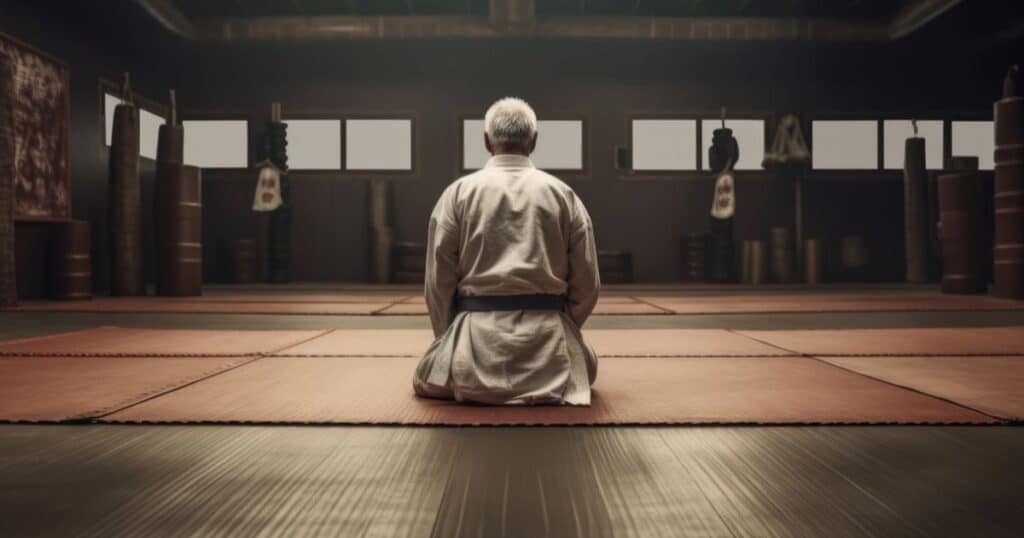Independence is a key component of being successful in life. When we are able to do things on our own, it shows that we are capable of taking on the challenges that life throws at us.
We grow and develop confidence and become independent. We can do things in a way that makes sense to us instead of following someone else’s instructions all the time.
Encouraging independence is crucial as it helps people develop crucial life skills, improves self-esteem, and leads to greater self-reliance. It instills a sense of responsibility and autonomy, which are essential for personal growth and success. It also allows for more diversity and ingenuity in addressing issues and making choices.
The significance of independence means it’s not just a skill for children; it is something we can all benefit from throughout our lives.
Independence, like all skills, requires practice and effort to develop. This also means society can encourage and strengthen it—through the way we structure our homes, neighborhoods, and communities.
So what does it truly mean to empower someone to be independent?
What does it mean to encourage independence?
Aiming for independence means helping people develop the skills and confidence they need to take care of themselves and succeed in their lives. Whether it’s a child learning to tie their shoes or an employee taking on a new project, every step toward independence is an important one.
To become more independent, the key is in early childhood. If you’re a parent, you can play a pivotal role if you allow your child to try new things and let your child choose for themselves. This not only teaches a sense of importance and belonging but also cultivates self-help skills. By providing a supportive environment, children develop the self-confidence needed to face the challenges of growing up.
For example, Maria Montessori’s educational philosophy places a strong emphasis on allowing children to choose their activities autonomously, including outdoor learning and outdoor play. This not only supports early childhood education and preschoolers but also fosters a sense of responsibility and independence in children. Since children learn best on their own (especially during play time), the Montessori approach is an essential tool in building self-discipline and independence in young people.
Promoting independent values starts with building a sense of self-sufficiency and responsibility. The idea is to give people the tools they need to make their own decisions, solve problems on their own, and take action without asking for permission or help. When you let a child try new experiences on their own, they will carry them into adulthood because it lets them know new things are not to be scared of.
Why is it important to encourage independence in others?

Since independence is important for personal growth, understanding how to instill it in others can be a valuable skill for parents, educators, and managers alike.
There are numerous bodies of literature that support this argument, but here is a summary:
Allows individuals to develop problem-solving skills and become more resourceful.
Allowing someone to take on tasks independently means they are forced to think critically and find solutions on their own.
It also provides an opportunity for people to hone their knack for finding solutions, become more resourceful, and teach relevant qualities such as patience and discerning between self-discipline vs. self-control.
This means they will be better prepared for future situations that require them to think on their feet, as well as be more efficient in their daily lives. All these are essential ingredients for building independence and cognitive development.
By teaching a child to be self-sufficient and overcome any fear of independence, parents not only prepare them for adulthood but also give them a way to build useful social and emotional skills throughout their lives.
Note that independence is not confined to any specific life stage. It is a continuous journey that evolves with age. For older children, adolescents, and adults, the ability to feel they have control over their lives is crucial. Sensitivity towards others, self-discipline, and self-trust become invaluable qualities for navigating the complexities of adulthood and give a child a sense of belonging to a “greater whole.”
Whether it’s managing finances, starting a business, or taking action regarding one’s health and well-being, being independent can have a positive impact on an individual’s quality of life. It’s an essential component of child development, but anyone can learn at any stage of their life.
Enables individuals to take responsibility for their actions and decisions.
Independence allows people to learn to think critically, make informed choices, and develop a sense of self-mastery. This skill empowers individuals to take ownership of their lives, become self-reliant, and take proactive steps toward their goals. When you help your child think for themselves, it molds them to have a strong opinion that cannot be swayed by others.
This helps them become more accountable for their situations and resilient in the face of adversity, which will pay dividends in their personal lives and careers.
Although encouraging self-sufficiency is paramount, it’s equally vital to provide a safety net. Individuals, especially parents and mentors, should help those around them develop decision-making skills. Balancing the desire for autonomy with a supportive environment ensures that individuals can explore their independence without feeling vulnerable to external hazards.
Encourages the development of self-confidence and a sense of autonomy.

When individuals are given the opportunity and take part in activities that promote independence, such as making decisions and taking responsibility for their actions, they learn to trust themselves and their abilities. This, in turn, can increase their self-esteem and make them feel more capable of facing challenges.
Additionally, developing a sense of autonomy can help individuals feel more in control of their lives and give them a greater sense of personal fulfillment. This makes it especially notable to understand the difference between independence and freedom since it can help to find the right balance between these two important concepts.
The ability to make decisions is a cornerstone of achieving independence. When you start early and encourage your child to make their own choices, even in small chores or simple tasks, kids learn a sense of control and self-destiny. This not only helps them become good decision-makers but also reinforces the idea that anything they put their minds to is achievable—whether you’re a senior or a preschooler!
Promotes creativity and innovation as individuals are encouraged to think for themselves.
When individuals are allowed to think for themselves, they are free to generate unique ideas and solutions to problems. This freedom to think outside the box can lead to breakthroughs, both personally and professionally.
It can also be beneficial not only for personal growth but also for society as a whole. People who grow up with a strong nose for independence often become creative thinkers, letting them create a culture of innovation that can lead to new advancements and discoveries in various fields.
That said, while independence is crucial, it’s equally important to cultivate an attitude of collaboration. Individuals who feel they have control over their lives can contribute meaningfully to society. Striking a balance between personal independence and collaborative efforts ensures a harmonious and progressive community.
Help individuals develop a strong sense of identity and purpose.
When individuals have the freedom to make their own choices and decisions, they are more likely to explore their interests and passions, leading to a greater understanding of themselves and their values.
Offering choices, whether in learning environments or playtime, lets individuals know that we value them and their decisions. This not only prevents feelings of abandonment but also contributes to the development of a strong sense of self-belief.
This helps develop a stronger identity, a clearer understanding of one’s purpose in life, and a more robust emotional development and emotional independence. Ultimately, this can help individuals lead more fulfilling and meaningful lives.
Promotes healthy risk-taking and learning from mistakes.
Taking risks is an essential aspect of personal growth. Allowing individuals to explore the world by taking risks not only contributes to their safety and well-being but also enhances their decision-making skills. The experiences gained through risk-taking become invaluable lessons for a lifetime.
In fact, those who grew up without a strong sense of independence may react with anger and resistance in challenging situations, rather than developing a seemingly indifferent attitude and calmness. Independence, therefore, becomes a shield, helping individuals navigate life’s difficulties with resilience.
By encouraging healthy risk-taking, individuals can build confidence, learn fortitude, and develop problem-solving skills that are essential for success in various aspects of life. Furthermore, embracing mistakes as opportunities for development and learning can help individuals overcome the fear of difficult things, develop a growth mindset, and allow adults and children to focus on improvement.
Aids in fostering a habit of self-education.
Independence enables individuals to take responsibility for their own learning and growth. Self-education is an important way to seek out new knowledge and skills on one’s own without relying solely on formal education or instruction.
By developing a habit of self-education, individuals can continuously improve themselves and adapt to changing circumstances, which is essential in today’s rapidly evolving world. This also helps instill discipline, curiosity, and a willingness to explore new ideas and perspectives, which are essential for lifelong learning and growth.
Independence is important, so how can we encourage independence?
Being independent doesn’t mean pushing people away and making them fend for themselves. It’s about giving them the resources they need to be decisive without relying on others for assistance.
Here are a few tips to help promote independence in others:
- Encourage decision-making skills by letting individuals choose from different options and weighing the pros and cons.
- Help people learn how to solve problems by letting them come up with and carry out their own solutions.
- Help them to develop or learn new skills through trial and error, allowing them to make mistakes and learn from them.
- Give individuals responsibilities and daily routines that are appropriate for their age and ability level, gradually increasing as they become more proficient.
- Teach individuals how to manage their time effectively by setting goals and prioritizing tasks.
- Encourage self-reflection by asking individuals to evaluate their own performance and identify areas for improvement.
- Provide positive feedback and praise for efforts and accomplishments to build confidence and motivation.
- Allow people to feel independent by giving them choices and be responsible for what they do.
- Encourage self-care by teaching individuals how to take care of their physical and emotional needs, such as exercise, healthy eating, and stress management.
- Provide opportunities for individuals to interact with a diverse range of people and cultures to broaden their perspectives and promote open-mindedness.
While these are only some of the many ways to help instill independence in others, there is still no better way to do so than by example. Modeling independent behavior sets an example for others to follow, and it demonstrates the importance of taking responsibility for one’s own actions. If you are an advocate for independence, then you should be an advocate for yourself as well.
Conclusion
Independence is a key skill that can benefit us all. It helps us navigate the world around us and commit to choices that are in our own best interest.
It helps us to be mindful of the impact we have on ourselves and others, and it helps us to live in a way that reflects our values. While independence is not a skill that can be learned overnight, with practice and patience, it can be achieved.
So let’s take hold of our own lives and watch ourselves flourish by practicing and encouraging independence.









